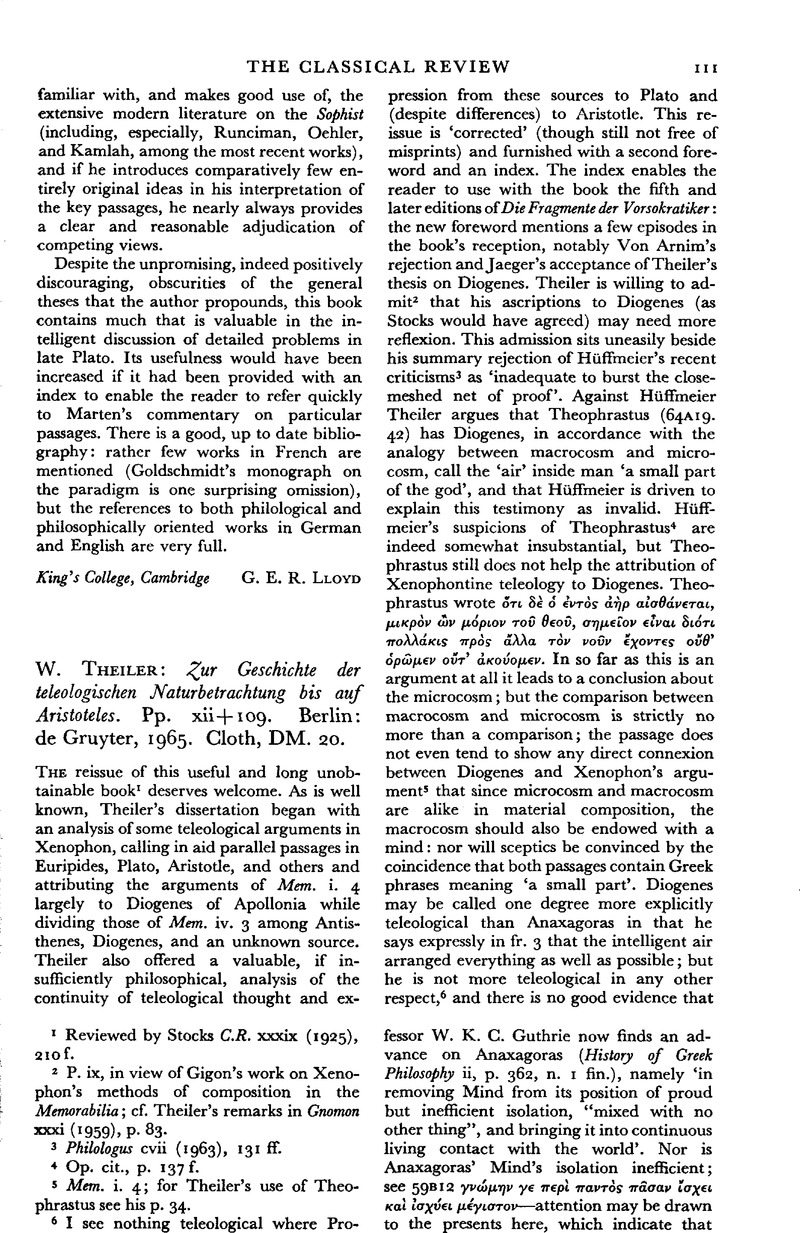No CrossRef data available.
Article contents
W. Theiler: Zur Geschichte der teleologischen Naturbetrachtung bis auf Aristoteles. Pp. xii + 109. Berlin: de Gruyter, 1965. Cloth, DM. 20.
Published online by Cambridge University Press: 27 February 2009
Abstract

- Type
- Short Reviews
- Information
- Copyright
- Copyright © The Classical Association 1967
References
page 111 note 1 Reviewed by Stocks, C.R. xxxix (1925), 210fGoogle Scholar.
page 111 note 2 P. ix, in view of Gigon's work on Xenophon's methods of composition in the Memorabilia; cf. Theiler's, remarks in Gnomon xxxi (1959). P. 83Google Scholar.
page 111 note 3 Philologus cvii (1963), 131 ffGoogle Scholar.
page 111 note 4 Op. cit., p. 137 f.
page 111 note 5 Mem. i. 4; for Theiler's use of Theophrastus see his p. 34.
page 111 note 6 I see nothing teleological where Professor W. K. C. Guthrie now finds an advance on Anaxagoras (History of Greek Philosophy ii, p. 362, n. 1 fin.)Google Scholar, namely ‘in removing Mind from its position of proud but inefficient isolation, “mixed with no other thing”, and bringing it into continuous living contact with the world’. Nor is Anaxagoras' Mind's isolation inefficient; see 59B12 γνώμην γε περ⋯ παντ⋯ς π⋯σαν ἴσχεικα⋯ ἰσχ⋯ει μ⋯γιστον—attention may be drawn to the presents here, which indicate that Anaxagoras' Mind was active in the developed world, even though he fails to ascribe to it any specific present physical process. But Guthrie is right to stress Diogenes' defence of such limited teleology as he envisaged: this contains the earliest appearance known to me of the argument from design.
page 112 note 1 J.H.I. xxiv (1963), pp. 473 ffGoogle Scholar. See also, e.g. Professor D. J. Allan's inaugural address to the Aristotelian Society, Ar. Soc. Supplementary Volume xxxix, 1965, and Wieland's work there cited.




